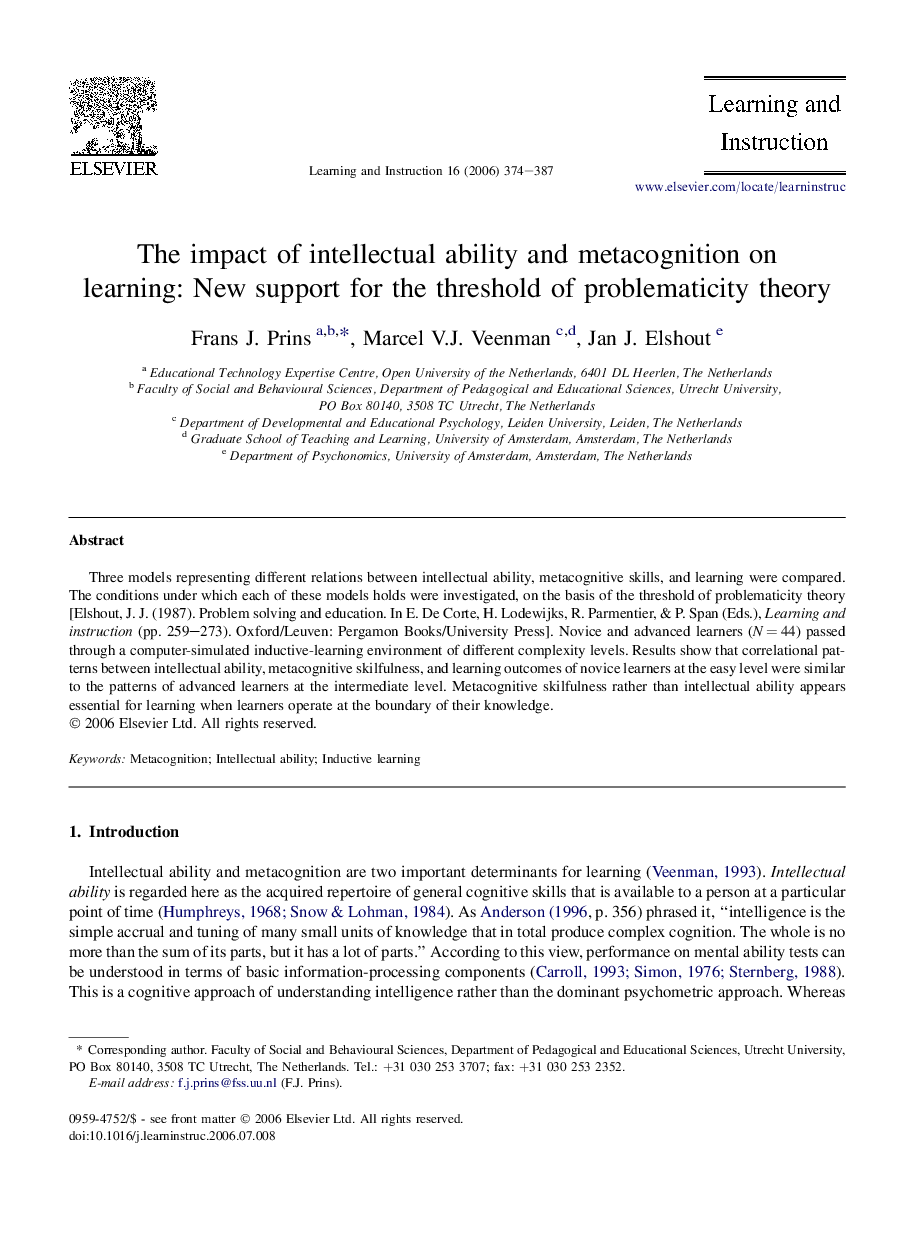| Article ID | Journal | Published Year | Pages | File Type |
|---|---|---|---|---|
| 365742 | Learning and Instruction | 2006 | 14 Pages |
Three models representing different relations between intellectual ability, metacognitive skills, and learning were compared. The conditions under which each of these models holds were investigated, on the basis of the threshold of problematicity theory [Elshout, J. J. (1987). Problem solving and education. In E. De Corte, H. Lodewijks, R. Parmentier, & P. Span (Eds.), Learning and instruction (pp. 259–273). Oxford/Leuven: Pergamon Books/University Press]. Novice and advanced learners (N = 44) passed through a computer-simulated inductive-learning environment of different complexity levels. Results show that correlational patterns between intellectual ability, metacognitive skilfulness, and learning outcomes of novice learners at the easy level were similar to the patterns of advanced learners at the intermediate level. Metacognitive skilfulness rather than intellectual ability appears essential for learning when learners operate at the boundary of their knowledge.
